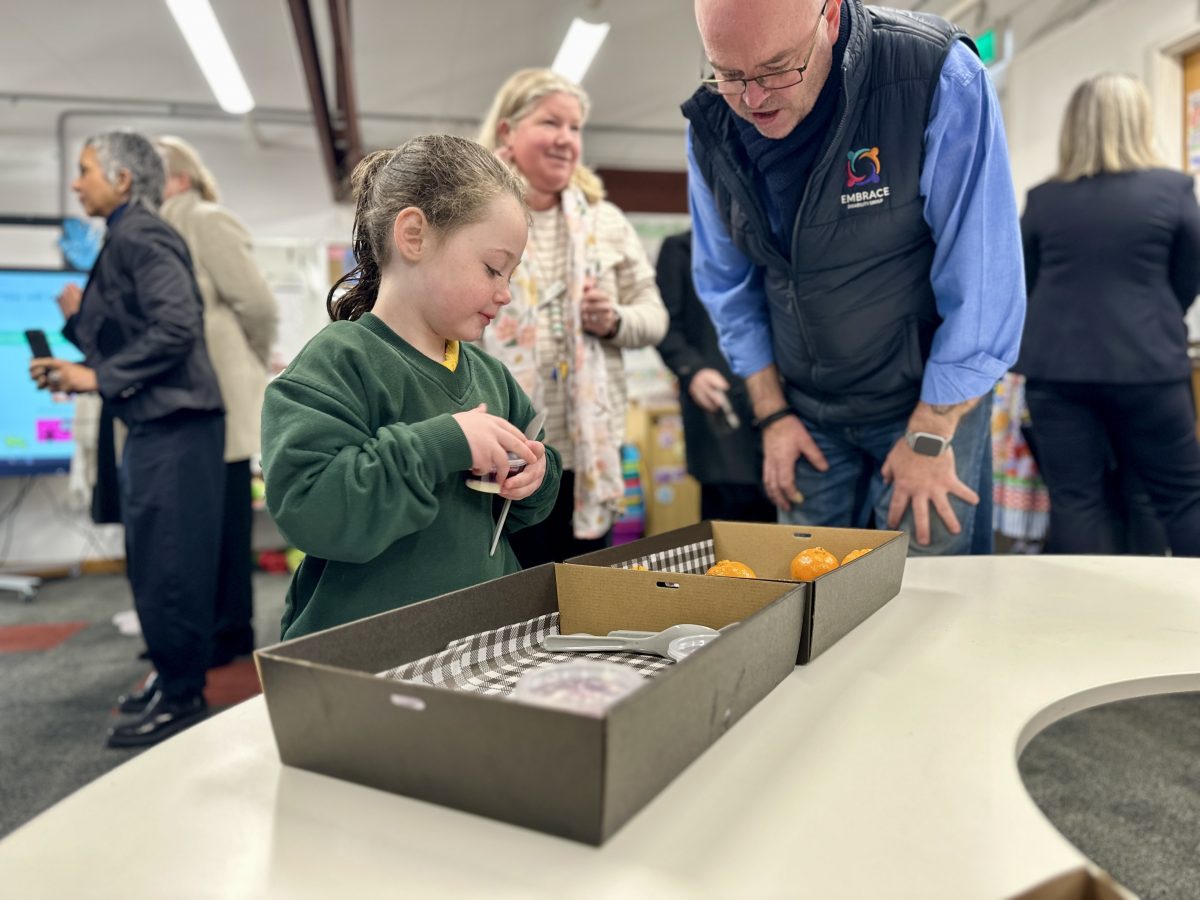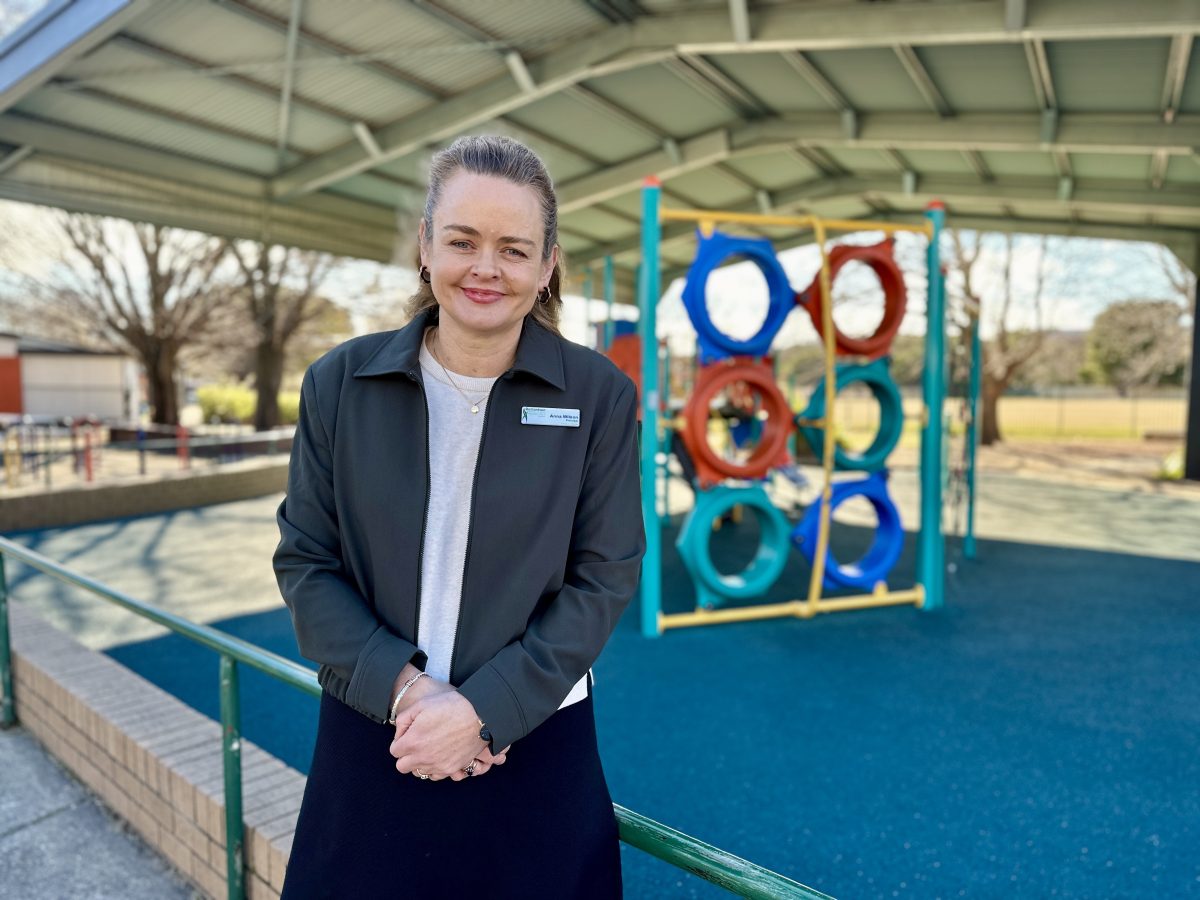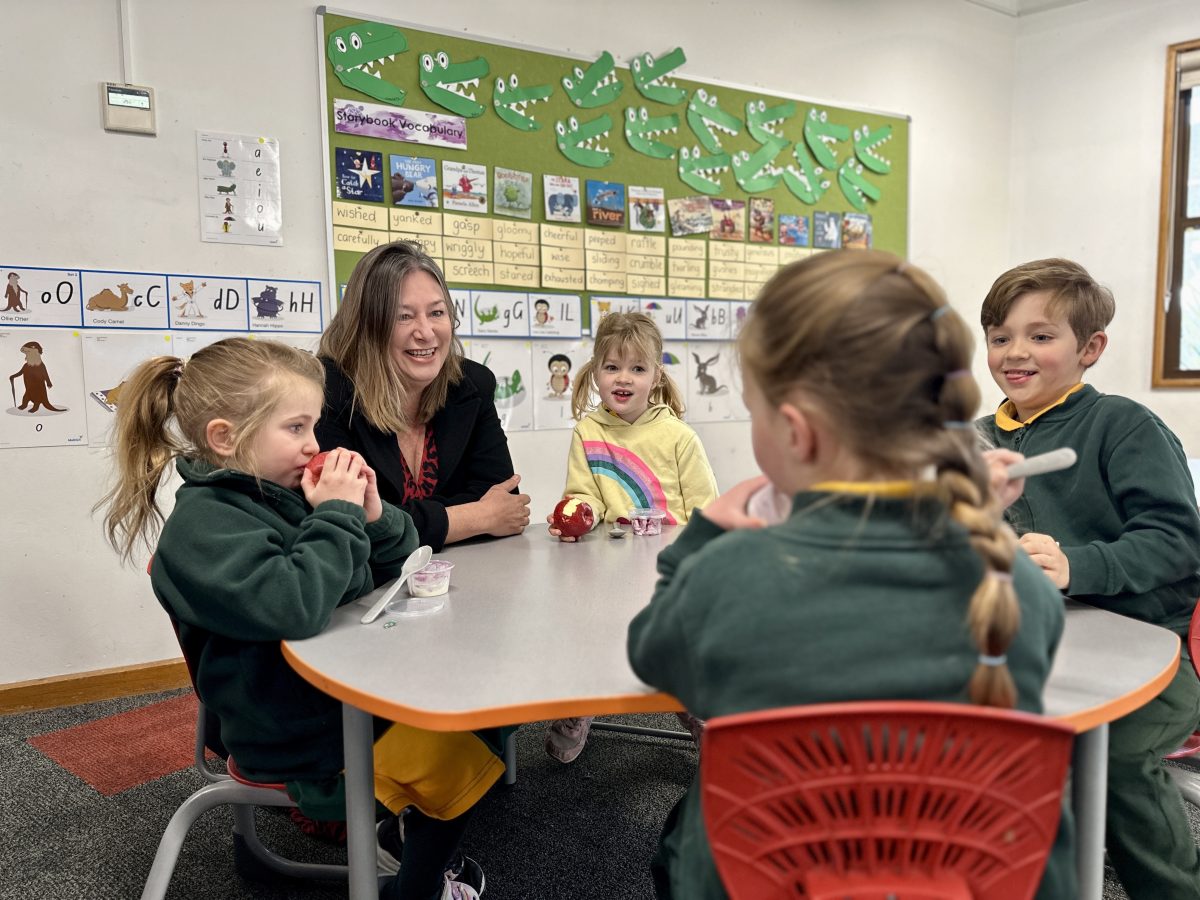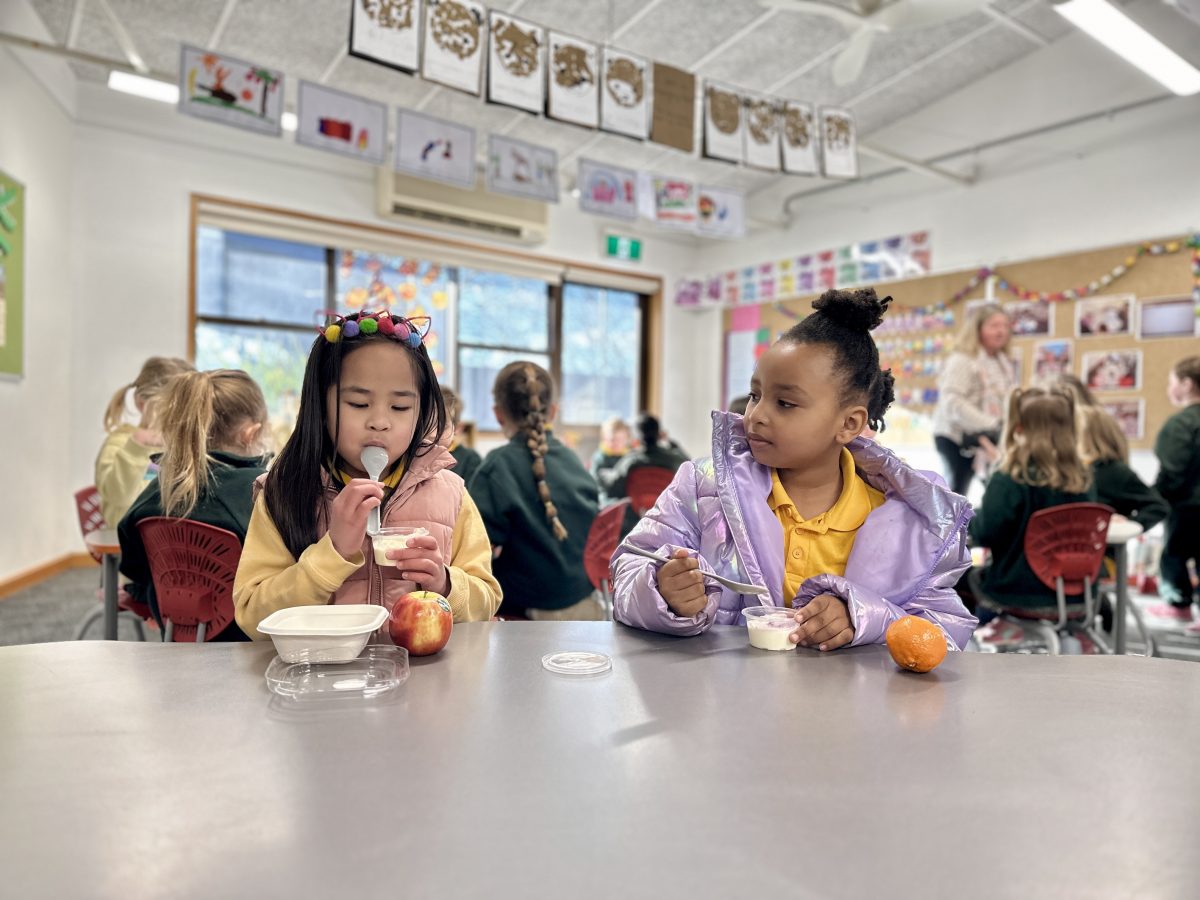
Embrace Disability Group’s Matt Morrissey helps a child at Richardson Primary School pick out their breakfast. Photo: James Coleman.
Cost of living at the moment is “just outrageous”, according to the principal at Richardson Primary School, which is why she’s thrilled her school has been picked as one of the launch sites for a new $4 million government program.
“It will reduce the burden on parents having to prepare meals three days a week for their children, and they’ll also know they’re getting nutritious and delicious food,” principal Anna Wilson said.
From now until July 2025, the Meals in Schools program will provide students at five ACT public schools with access to free breakfast and lunch three days a week throughout the school year.
The schools are the Narrabundah Early Childhood School, Richardson Primary School, Gilmore Primary School, Gold Creek School Senior Campus (years 7 to 10), and the Melba Copland Secondary School, College Campus (years 10 to 12).
“Research tells us that students learn better and are happier at school when their bellies are full. That’s why we committed to free breakfasts and lunches in five public schools,” ACT Minister for Education Yvette Berry said.
“A free feed will also take the pressure off families who are doing it tough. It will reduce grocery bills and make it easier for busy parents to get everyone out the door in the mornings.”

Richardson Primary School principal Anna Wilson welcomed the pilot program. Photo: James Coleman.
The food is compiled and delivered each day by Embrace Disability, a Canberra catering group that employs people with disabilities.
“We’ve got yoghurt cups, fruit sticks, vegetable sticks, pies, savoury muffins, sandwiches, wraps, little hash brown and egg parcels, so it’s a great variety of food,” director Matt Morrissey says.
“We’ve created a menu we believe is suitable for both primary and secondary age students … and that caters for all sorts of allergen types, whether that’s gluten-free, dairy-free, egg-free.”
Mr Morrissey says the project is not only a boost for their suppliers and producers, but also allows them to employ “potentially another 15 to 20 people with disabilities from the local region, which is incredible”.

The menu is suitable for all major allergen types. Photo: James Coleman.
The program has been a long time coming.
It was first promised in the lead-up to the 2020 ACT election, and the pilot was announced in March 2023 at a cost of $1.4 million.
However, the government allocated $4 million for it in the latest budget and has said the next 12 months will be used to work out what it would cost to run full-scale across all government schools.
“We were looking at probably being a little bit too bespoke in the first iteration of this project,” Ms Berry said.
“It wasn’t very practical. We’re now looking at this program being universal and not targeted at just children who might have greater needs.”
The five schools were selected to provide a broad range of demographics and ages for the pilot “so we could understand how it works from five-year-olds all the way up to 17 or 18-year-olds”.
The minister said they’ll know if it’s working or not based on feedback from the children themselves, as well as the teachers, who “will be able to tell us whether it’s easier for children to settle into class at the start of the day because they’re not hungry”.
The ACT Government was pressured by local Greens members last year to provide every public school with its own canteen, and while Ms Berry didn’t rule out more canteens for more schools, she said the tide has largely turned against them.

ACT Minister for Education Yvette Berry with children from the Richardson Primary School. Photo: James Coleman.
“You’ll hear differences of opinions from parents and teachers about sending children to school with their own meals or collecting meals from a canteen,” she said.
“Canteens are becoming even more and more challenging to operate … particularly given the costs of groceries and food … These are the kinds of challenges we’re overcoming through this pilot … and something we’ll learn through this pilot as well.”
Most of the canteens and other food services already established in ACT public schools are operated by volunteers, represented by the ACT Council of Parents & Citizens Association (ACTP&C).
ACTP&C executive officer Veronica Elliott agreed it’s an “increasing challenge” to operate them.

The government will spend the next 12 months working out how much it will cost to take the program ACT-wide. Photo: James Coleman.
“It’s very hard to find staff to take on the service, but it also requires general oversight and maintaining high nutritional standards.”
She added that the pilot will enable the schools to understand how the cost compares to running more canteens.
“We really do need to understand what the cost of this service is and and whether or not it’s scalable.”
The ACT Government also offers cost-of-living support to students and their families in ACT public schools through the ‘Future of Education Equity Fund’, as well as free Chromebooks for secondary students, free access to the internet at home for families who need it and free period products in schools.




















